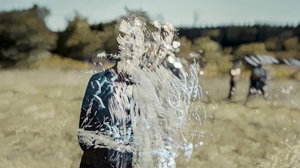Join us for our next discussion on Friday, October 2 with Mickey Vallee from the University of Lethbridge.
This presentation looks at the relationship between philosophies of the Anthropocene, citizen science, and big data within the context of bioacoustics research. Bioacoustics has traditionally been a branch of science that isolates, records, and monitors sounds emitted from living organisms that are usually imperceptible to normal human hearing. From within the scientific community, bioacoustics has been a cost-effective means to monitor longterm changes in biodiversity. Currently, the increasing availability of recording technologies is expanding the work of bioacoustics data collection, incorporating hobbyist sound collectors who record sounds for scientific databases, as well as for more expanded purposes in culture and the arts. This expanding network of data collectors marks an important shift for the future of the earth, since vast, limitless, and global research teams will be needed to accrue data that appropriately represents the massive forces of ecological change. This new “crowdsourcing methodology” for data collection persists especially in online sonic preservation archives that rely greatly on the new “citizen scientists” to gather data for analysis. Sound recording technologies (binaural sound recorders, ultrasonic transducers, hydrophonic devices, and many others) open new doors for (1) environmental monitoring, (2) citizen research and (3) big data. In the presentation, I propose that this move towards objectively captured subjective experience connects deeply with the current assemblages of human, non-human, more-than-human, and post-human actors that characterize philosophies of the Anthropocene.







